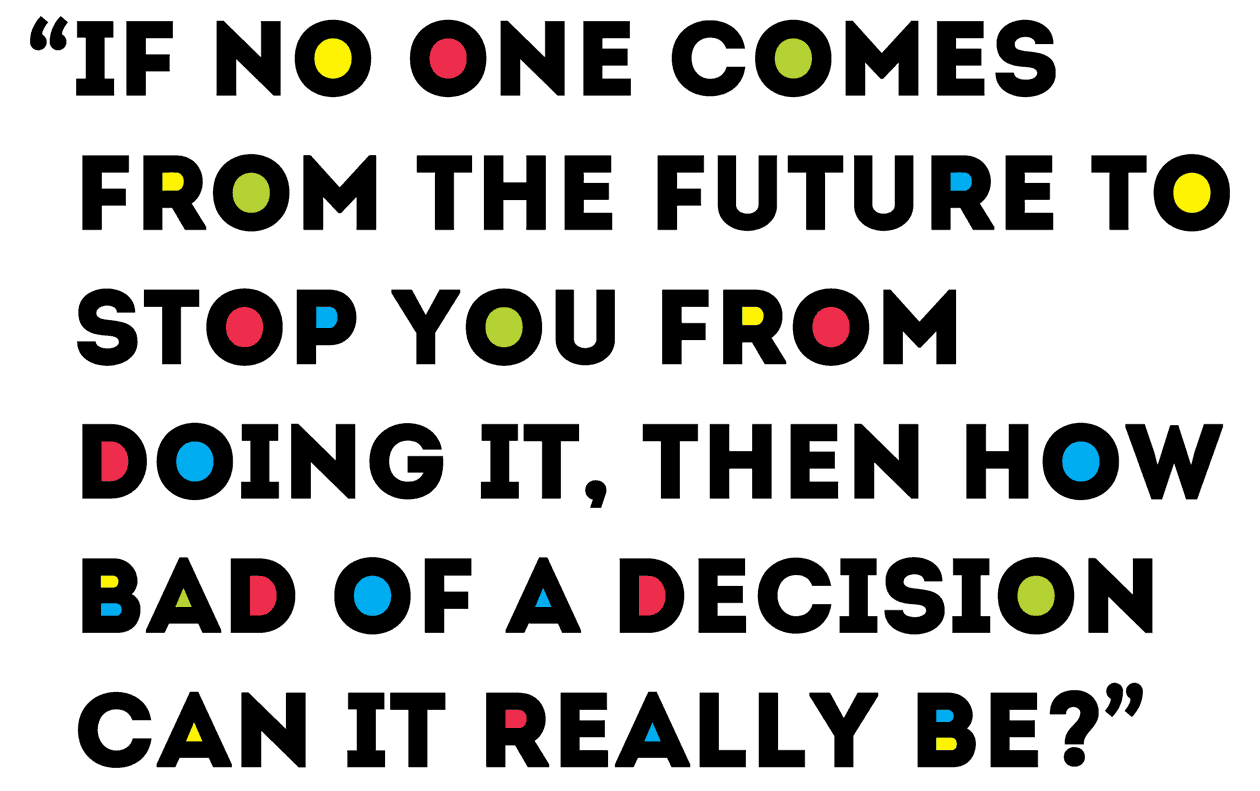
The simple truth is we attempt to solve the wrong problem. Problem-solving drives a lot of poor decisions. Don’t let anyone define the problem for you. Rule: Don’t make important decisions when you’re emotional, tired, hungry, distracted, or in a hurry. We don’t consider information correctly, as our attention is elsewhere. The urgency to satisfy one of these negative feelings leads us to act impulsively. It doesn’t matter whether it's hunger, tiredness, feeling emotional, or being in a hurry, the impact is always the same. Our minds are at their weakest when they are trying to manage some deficiency. Don’t make important decisions when you’re emotional, tired, hungry, distracted, or in a hurry. Now we need to understand these rules in more detail. Reflect on your decision to learn what worked and what didn’t.Always ask ‘what do I know to be true?’ Filter out incomplete information.Get your information as near to the source as you can.Don’t let anyone define the problem for you.Don’t make important decisions when you’re emotional, tired, hungry, distracted, or in a hurry.Some rules can help us avoid making bad decisions, easing the pressure of an explosion of error.
BAD DECISIONS FULL
Those without such a process find their heads full of gunpowder waiting for a spark. Good judgements rely on a good decision-making process. If managing the environment wasn’t hard enough, we have other areas of complexity, bringing yet more confusion. These are elements from our environment, and they are like dry straw to a naked flame in our heads. Then we must add in the fear or desire which accompanies risk and opportunity. In turn, what this does to our emotions, along with the influence of other peoples feelings. The circumstances of our physical condition matter, as it impacts the state of our minds. Mental models enable us to identify patterns and give us tools to improve our decision-making.īut what really sets the sparks flying in our minds is our environment. These learnings teach us survival instincts-so we intuitively know whether we should fight, take flight, or freeze in moments of danger. We have mental models and cognitive biases, all constructed from moments in our past-and our relatives past. This whirlwind of thoughts comes via a complex system of inherited behaviours. Knowing what fuels this turbulence can help us to make important decisions in the right way and lead us away from a potentially dire choice. Terrible choices fall from the turbulence in our minds. Grasping this is the first step to help you avoid making bad decisions. What we should never do is confuse a bad decision for an outcome we didn’t want or expect. This truth lies at the heart of every poorly made decision. It is a failure to follow a sequence of considerations to ascertain your preferred outcome. Never confuse a bad decision for a outcome you didn’t want or expect.įor me, a bad decision is a moment when the process of selection is incorrectly followed. Yes, probability weighs heavy on the 100/1 horse not winning, but entropy plays its hand and-well who knows.

5 horses in 183 races have won, which suggests it's a lucky event-and unlucky for those with lower odds. Betting like this-on a horse with such long odds-defines a poor decision. The Second Law of Thermodynamics is quite clear in the role of uncertainty, randomness and luck play in our lives.īetting in the Grand National shows us this.įive horses have won the race with odds of 100/1. Arthur Eddington would argue fervently against this statement. Make bad decisions and bad things happen.”ĭick firmly states the quality of an outcome is directly relational to the quality of the decision. Make good decisions and good things happen. It’s a question which many people can’t answer easily.ĭick Vitale captures the essence of this confusion here: “Life is simple. Before we get into those preventive measures, we need to clarify one central question… What is a bad decision? I’m here to offer some perspective-a new way-in the form of rules to help you avoid making bad decisions. That's why we make so many poor decisions. Our cognitive biases offer their inherited view pushing us first one way and then the other. Impulse urging us forward without any consideration of even the most important decisions. Yes, even without the swirling forces of luck waiting to strike, we are more than capable of making a stream of poor decisions. The reality is the forces of entropy influence our lives far more than we dare to admit.īut, it shouldn’t excuse us from making some terrible choices. Most of us don’t want to cede control to the pitfalls of uncertainty, randomness and luck. Let’s face it, we’re all control freaks at heart and our brains can’t process the impact of entropy in our lives. Isn’t a bad decision another name for a bad outcome?ĭoes our decision-making get bad press because we can’t grasp the impact of luck on our choices? I believe it does.


 0 kommentar(er)
0 kommentar(er)
